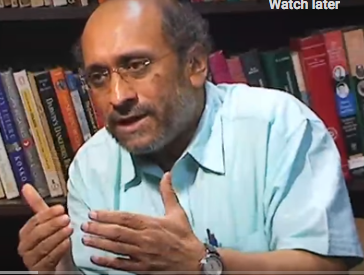
The arrest warrant issued against noted journalist Paranjoy Guha Thakurta is the latest instance of censorship and intimidation through legal cases against journalists and their convoluted and punishing procedures.

On January 19, 2021, Judicial Magistrate Pradeep Soni of the District and Sessions court in Kutch district in Gujarat, issued an arrest warrant against Paranjoy Guha Thakurta in a defamation case that was filed by the Adani Group in 2017. A direction was issued to the Nizamuddin police station in New Delhi, asking them to arrest Thakurta, who “stands charged” with complaint under section 500 of the IPC, relating to criminal defamation.
Barely a week ago, The Shillong Times Editor, Patricia Mukhim ,was forced to file a special leave petition before the Supreme Court of India against an order of the Meghalaya High Court dated 10.11.2020 , which refused to quash criminal proceedings against her under Sec 153A, 500 and 505(c) of the Indian Penal Code (IPC), following a Facebook post seeking action by the State against an attack on some non-tribal boys in Meghalaya.
(Sec 153A (Promoting enmity between different groups on grounds of religion, race, place of birth, residence, language, etc., and doing acts prejudicial to maintenance of harmony while Section 500 is Punishment for defamation, and Sec 505(c) relates to Statements conducing to public mischief).

In a Facebook post on July 4, 2020, Mukhim had drawn attention to an assault on six non-tribal boys in Lawsohtun in Shillong by around 20 to 25 unidentified boys when they had gone to play basketball. Mukhim condemned the violence and appealed to the State authorities to take strict action and also appealed to the traditional village community body, the Dorbar Shnong to use their social clout to end the violence.
The case against Thakurta arose from an extensive report, entitled ‘Modi Government’s Rs 500-Crore Bonanza to the Adani Group’, published in the magazine Economic and Political Weekly (EPW) on June 14, 2017. Paranjoy Guha Thakurta was then editor of the EPW and had co-authored the report with independent researchers Advait Rao Palepu and Shinzani Jain and an EPW staffer, Abir Dasgupta. The report said that the Narendra Modi government had tweaked rules relating to special economic zones, which gave the group a “Rs 500 crore bonanza”.
Subsequent to its publication, the company has made several attempts to silence and browbeat its authors. The Adani group sent a legal notice to the EPW. In an unprecedented move, the magazine’s trustees (the Sameeksha Trust) retracted the article, citing procedural lapses in its publication and Paranjoy Guha Thakurta resigned as the editor. The entire investigative report was published in the news website The Wire on June 19, 2017.
The Adani group filed a criminal defamation case against Paranjoy Guha Thakurta and other authors as well as against The Wire. In 2019, the company had dropped its complaint against The Wire as well as against the co-authors of the article, excluding Paranjoy Guha Thakurta. The latter continued to attend all hearings till courts were closed due to the Covid-19 pandemic. The courts re-opened on Jan 18, 2021 and a warrant for his arrest was issued the next day, though his lawyer, Anand Yagnik, had assured the court that he would be present at the next hearing.
The manner in which the warrant for the arrest of Paranjoy Guha Thakurta was issued despite his lawyer’s plea, is an excessively punitive response. Yagnik said that the journalist had remained present in prior hearings. Clearly, he has not made any attempt to evade any processes of justice. An arrest warrant, in this context, amounts to intimidation.
Indeed, the extensive use of criminal defamation to censor and silence journalists has become the norm and strikes a blow against freedom of expression. Despite several attempts, it continues to remain in the statute books, a handy tool to browbeat journalists.
In the case against Mukhim, the High Court had rejected her petition after observing that her Facebook post sought to create a divide in the cordial relationship between the tribal and non-tribal living in Meghalaya, “even alluding to the role of the State machinery as being biased in this regard.” The SLP said that the “letter and spirit of the Petitioner’s Facebook post can by no stretch of imagination be read as disclosing a malicious intent to incite disharmony, hate or ill-will between groups.”
According to reports, a three-judge led by Justice L Nageshwara Rao after hearing advocate Vrinda Grover, for the petitioner, called for the response of the state government and listed the matter on February 5.
Download SLP in the case relating to Patricia Mukhim here:


